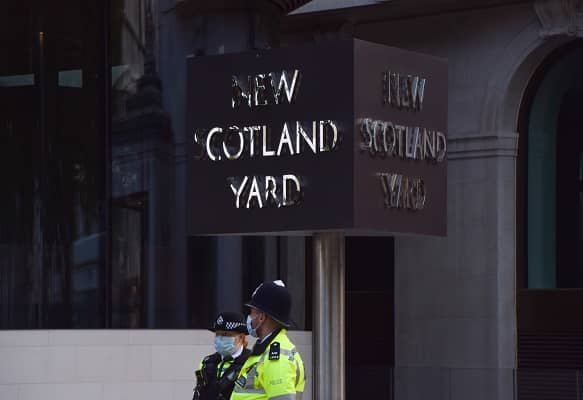Bussiness
Labour needs to come clean on its business rates strategy

Labour Needs to Come Clean on Its Business Rates Strategy Says Colliers – as promises to replace business rates and “save the high street” remain “woolly” and lack clarity.
The Labour party has recently announced to “breathe new life” into high streets, unveiling a five-point plan including reforming business rates and tougher laws on shoplifting.
Labour has declared it will replace business rates with a system of “business property taxation” which it claims will level the playing field between high street businesses and online retailers.
However, the party has been less clear about what this system of business property taxation would be and when pushed to clarify, has failed to come up with any concrete plans; a scenario labeled as, “highly worrying,” by John Webber, Head of Businesses Rates at Colliers, “…considering the fact we are just six months away from the General Election and a potential Labour Government.”
Business rates, which raise £30 billion a year, are an important source of revenue for local authorities and pay for essential services. However, most professionals and commentators agree the current system has long needed reform, especially with the current multiplier at 54.6p in the £, making it a 55% tax on local businesses. According to John Webber, “Nowhere else in Europe do businesses pay approaching 60% the rental of their premises in property taxes and at current levels this is unsustainable for business and deters new investment. The current business rates system has contributed heavily to the decline of the retail and hospitality sectors and the decline we are seeing in the high street.”
Webber continued, “Successive Conservative governments have promised to reform the tax, but none have delivered, just making the system more onerous and expensive for the ratepayer as time has gone on. Whilst it is encouraging to read of Labour’s aspiration to breathe life back into our high streets, unless they tell us what they plan to do, how can anyone scrutinize their plans or take their calls for change seriously?”
Labour has said it will make sure no public service or local authority will lose out from its changes. So what might it actually do?
Land Value Tax One theory, previously mooted, is that Labour might consider a system based on a valuation process, probably a mix of land and rental value. *Colliers does not think this would work as the tax would most probably be levied on landlords. Business rates were set up to pay for the amenities and services that businesses use in the community so there should surely be no dispute that such businesses should pay something for these services.
The additional tax could also backfire. Landlords would most probably recuperate the money by hiking up rents charged to occupiers. Webber comments “We would therefore have a system whereby businesses would end up paying more to the landlord but unlike under the present system, would be unable to appeal against their combined rent and rate bills that the landlord would introduce. So how would they benefit? If Labour’s plans went down this route, they would just complicate the system and lead to more disputes.”
Digital Services Tax Over the years Labour has also been talking about “rebalancing the burden of business property taxation away from the high street and retail firms towards online tech giants”. This included a £3 billion tax raid on tech companies such as Amazon and Facebook. However, Labour has since abandoned these plans after being warned that such a policy would result in a trade war with the US. It also planned to help small businesses by increasing the threshold for small business rates relief, but as this was also to be funded by an increase in the rate of the digital services tax, might one presume this may be abandoned too?
Empty Property Relief Labour has also been urging the Government to “trial a “new shops bonus” to incentivise the legitimate business and beef up legal identity requirements for someone setting up a new company. Under the plans, shop owners would be offered a three-month business rates holiday in the first year in new premises. This would come in from month seven to nine to ensure the new business is viable and legitimate before it benefits from taxpayers’ cash. The business rate discount would be paid for by reallocating funding currently used to provide three months of ‘empty property relief’. Labour says this relief currently goes to the landlord, rather than helping new tenants.
Our view is that this thinking rather misses the point. Landlords often have a 12-month gap before finding suitable tenants, so to “clobber” them with empty rates is unfair and will do nothing to speed up re-letting. Then to offer new businesses a 3-month rates holiday 7-9 months in, also suggests the people drawing up these schemes have never set up a business – most new businesses fail due to a lack of cash flow in the early months since that’s when they need the help.
“The reality is businesses need a lower multiplier not window dressing nonsense.” Says Webber.
- More frequent revaluations,
- Rates to be more closely aligned to economic change,
- To incentivise investment and to reward businesses that move into empty premises, (thereby helping the high street).
- To incentive green improvements to businesses.
John Webber, Head of Business Rates at Colliers continued, “Labour does seem to be listening to businesses who have expressed their frustrations with the current business rates regime. But whilst we would support Labour if it introduced significant reform to the current system, we would not support its total abolition or any form of Land Value tax and we would certainly need to see the detail on other reforms suggested and its attitudes to say the Empty Rates Relief regime before we could give our support.”
Indeed, Colliers believes that whilst reform of business rates is essential, total abolition would be naïve. Webber continues,
“Business rates as a tax has been around for 400 years- it’s only the last 20 that it has been tinkered with so disastrously. It is the one “certain” tax. Given the economic situation in which the UK finds itself, no politician worth their salt would suddenly get rid of this the most certain of taxes, without replacing them.”
Colliers hope Labour’s new property tax would therefore retain all the best elements of business rates whilst reforming the existing system, reducing the multiplier and hence the burden of tax, and making things simpler.
Webber also believes that Labour’s lack of clarity on its policy is damaging for businesses.
“Pledging to abolish business rates and replace them with a business property tax is the easy bit. But we need to be able to advise businesses on what kind of taxes they will be paying under a Labour government. Many businesses, especially prospective retailers from abroad, will not invest unless they understand the market they are entering. If we cannot tell them, they will invest elsewhere in the world. This issue will only become more pronounced as time goes on.”
“Labour must come clean about what it is going to do. Businesses deserve to know what is happening so they can plan ahead and that includes owners and occupiers on the high street. Labour must show it has meaningful and well thought through policies and not just jump on the bandwagon. Or we will be calling them out right up to and after the election.”










